- Learning time
- 60 minutes
- First play time
- 150 minutes
Nemo´s War
Designed by: Chris Taylor
Inspired by Jules Verne’s 20,000 Leagues Under the Sea, in Nemo’s War you (as a solo player, or a team) captain the Nautilus on the high seas, searching for treasures, having adventures, and ramming lots of other boats in into a watery doom.
The board shows a map of the world with the seas handily represented as boxes. These boxes spend each turn of the game filling up with boats, and as the game progresses the seas get more and more crowded. The board has other elements too, but rather than go through everything in detail here – there’s a fair bit going on – we’ll just give a brief overview.
Each turn in Nemo begins with the flip of the card, showing either and Event or a Test which the Nautilus and its crew must undertake; sometimes you can deal with it later, but often immediately. Passing a test will give you some kind of benefit, and points at the end of the game. Failing will be less rewarding!
Then dice are rolled to determine how many ships will appear on the board. Nemo’s War has a relentless flow of ships into its waters, and aboard the Nautilus you see them as, at best, to be avoided; and at worst to be obliterated. The dice also determine how many actions you get to do this round, and the actions are plentiful. Possibly your main actions will be attacking ships (and increasing your notoriety as a result), searching for treasure, and inciting uprising against the imperialist governments of the world. But you might also have extra adventures, refit the Nautilus with something like a custom gadget or armored cladding… or take time to make repairs to the ship or rest its crew. Every action involves rolling dice, though you can bend the odds in your favour by exerting some element of the Nautilus – the hull, the crew, or Nemo himself, whose current condition are all tracked on the board. A good roll means your exertions were not in vain and everything you exerted immediately recovers. A bad roll means your exerted element deteriorates, and can eventually lead to collapse and defeat! As soon as your actions are up, the next card is flipped and a new round begins. The game will end when a Finale card appears (near or at the bottom of the deck), if the oceans are so swamped with ships that you can no longer add any more, if your notoriety reaches a level where the world turns against you, or if your careless actions have led to the Nautilus, its crew or captain succumbing to irreparable damage!
That’s the basics, though there is much more to be explored here. It is an adventure game, but how you go about your adventure depends which version of Nemo you choose, as there are four versions of the captain; with different motives – he can be explorative, warlike, anti-imperialistic or an enquiring scientist. These will establish your strategy for the game and your tactics when the dice turn against you. And they will…
Scoring is a little bit fiddly, as there are a number of ways to pick up points, and exactly how you score depends on ‘which’ Nemo you played. But after a couple of plays of the game it makes sense; though beware – this clever design will be certain to mount up the pressure on you and the Nautilus the longer the game goes on.
The guru's verdict
-
Take That!
Take That!
The game can be played either solo, or as a team. So the only Take That is from the fickle hand of fate (and the oppressive imperialists!)
-
Fidget Factor!
Fidget Factor!
Once you're familiar with the game, absolutely none. There's no waiting for turns.
-
Brain Burn!
Brain Burn!
Despite the busy board and thick rulebook, the brain-burning here is more about probabilities than anything else. Nemo's War looks like a heavy, brain-burning war game, but when you make friends with it it's a fast-moving dice-chucker with a lot of luck involved. How you manage that luck - and which hits you choose to take - is key.
-
Again Again!
Again Again!
Not only can you play 'different' Nemos, you can also play different ability settings, and the Adventure cards will be different in each game. On top of that you have the dice themselves, and then your own tactical manoueverings.

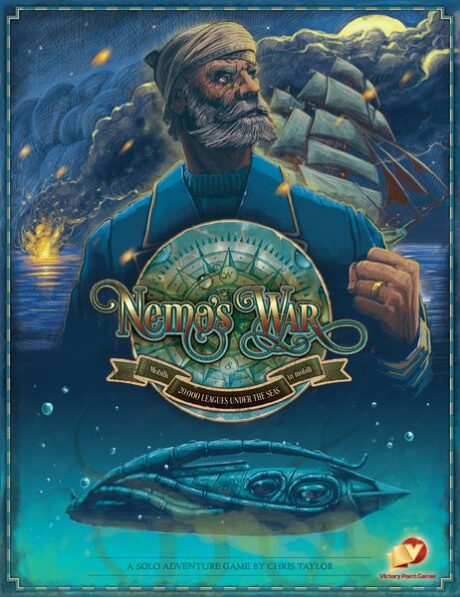


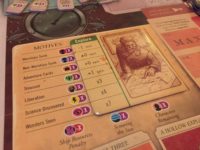
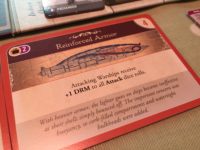

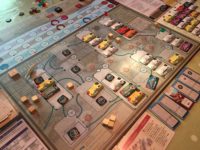





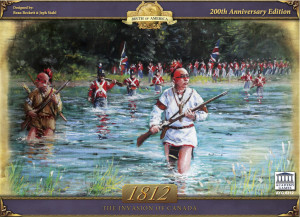

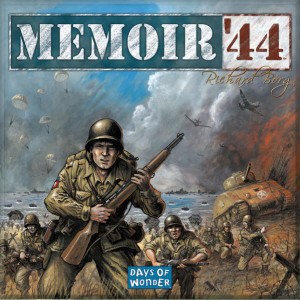
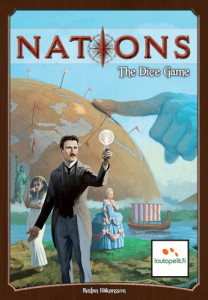
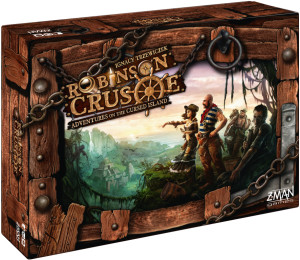
Sam says
Learning time of an hour or so is for someone coming to Nemo's War fresh. If you have someone who's played it teaching you, it'll be more like ten minutes. And even coming at it with no such help, the 26 pages of rules give a false impression that Nemo is a really complex game. Familiarity completely scratches that impression, revealing a game that is very much about luck-management rather than head-scratching rule-negotiation. This isn't a cognitive-overload of systems and exceptions - it's a time-running-out dice-chucker of pushing your luck, and trying to prevent the various catastrophes the narrative throws at you. If you have a group of people (or just one) after an immersive, dramatic adventure it really is worth investing the time in. Rather like Robinson Crusoe, it stays true to the spirit of its source text but creates a fun, tense, fight to the finish alongside it, full of decisions that you hope will see you through to a triumphant finale. A real favourite of mine.